This ultimate worldbuilding guide is tailored toward helping writers navigate the endlessly complicated process. It’s something I care deeply about, and one of the aspects of writing I like the most. I hope you find useful these worldbuilding tools.
What is Worldbuilding?
If you found this by searching for worldbuilding, then you probably already know what it is. Feel free to skip to the next section. But there’s a lot of subscribers to this blog that might not fully understand what I’m referring to.
Worldbuilding is the art of developing details about a fictional world. It is done, to some extent, in every work of fiction. If the world is completely unlike our own, for example, Middle Earth of The Lord of the Rings, then it is usually called a “secondary world.”
Secondary worlds are typical in epic fantasy, and they will mostly be the focus of these posts. But if you write literary fiction, some amount of worldbuilding is still expected of you. You’ll be generating the family history of characters and locations for the events to take place and so on.
Why Should I Do It?
This seems like a lot of work. You might be thinking: why can’t I just plot my story with the Hero’s Journey and write it? You might even be thinking: I’ve written novels and never done this!
Well, it’s true that you can probably scrape by without any formal worldbuilding, but the more worldbuilding you do, the more likely you are to create an interesting, believable, and consistent world.
The other easy answer is: your readers will think about these things even if you don’t.
Let’s say you create a “chosen one” story, like so many fantasy novels are. This has huge ramifications on your world. Is there a prophecy about it? Where did this prophecy come from? Is the prophecy true? If so, in what sense is there free will? Are there even stakes if the prophecy is true?
I’m not saying don’t use this trope. I’m saying, make sure you’ve thought through and developed what this means about your world.
The Wheel of Time has an interesting take on this with a history of previous Ages for why the prophecy started. It also has people who claim to be the chosen one but aren’t. The original Mistborn trilogy does an original twist on the prophecy idea.
I’m a Writer. Does This Change Worldbuilding?
Yes!
Presumably, your end goal is to produce a story, collection of stories, novel, or series of novels. This means your end goal is not worldbuilding, and it’s very important to keep this in mind.
There are people who love languages, and they spend all their free time making a fully functional language for their world. There are people who spend all their time on a magic system that will serve the basis of a game world.
Those people have different goals. It’s okay for them to get totally caught up in the details that are most important to them. In fact, worldbuilding itself can be a hobby with no intent on ever using it for something else like a game or novel.
If you truly want to learn how to worldbuild for your writing, then you must learn two important skills: don’t do too much and don’t do too little.
Unfortunately, most of your worldbuilding won’t make it into your novel. This is something you have to be okay with. I’ll give an extended example later from my book Talamir, but I’ve often been frustrated by coming up with something clever about my world and never getting to explain it.
In fact, most people will never even realize you gave it any thought at all. This is a good thing.
Worldbuilding for writers should be invisible in the final product.
There are two main ways people notice a writer’s worldbuilding:
- The writer makes it too obvious they are in love with the world they created by having long informational dumps and exposition explaining the things they came up with.
- There are holes in your worldbuilding that lead to inconsistencies.
The first is an example of bad writing. Long exposition dumps tend to be boring for the reader. But, even worse, when characters notice or explain something in the world, you’ve probably made them break character.
Remember, the world isn’t interesting and new to them (most of the time). The parts of your world that you spend a long time on and seem coolest are probably mundane facts to the character.
Can you imagine writing a novel that takes place in our world and having something like this:
Ben and Marisa trudged through the brush, exhausted from their day of hiking. A clearing opened up in front of them, containing a pond as clear as crystal. Ben needed the refreshing drink.
Ben looked at Marisa and asked, “Did you know that pond contains water? Water is a substance that can be ingested to hydrate our bodies. That tickle in your throat is called thirst, and it indicates your body needs this vital substance.”
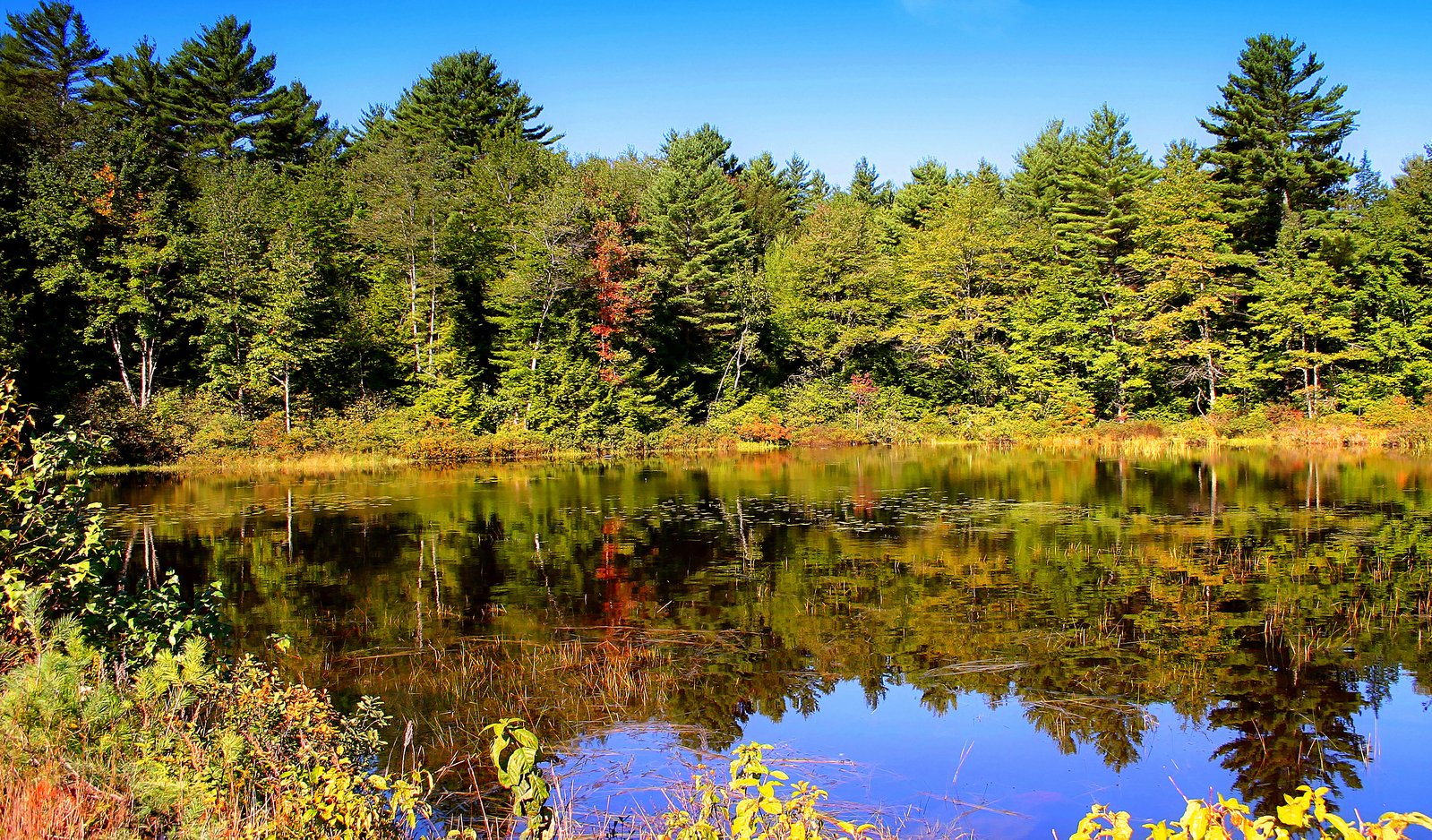
No one would ever say that, but that’s exactly what writers who are too in love with their world write for their characters. You must be okay with no one realizing you invented a chemical formulation of a substance and biological pathways for a certain species that consume said substance.
The second problem is equally bad, in my opinion, but it gets pointed out more since it’s easier to spot.
There is a balance to be struck. Pretty much every fictional world will have holes and contradictions. It’s nearly impossible to think of everything. So, you also have to be okay with this happening.
People will point it out in negative reviews. It’s okay. Those reviews are part of being a writer, and you can’t let imperfection in worldbuilding be an excuse to never finish something.
How to Start Worldbuilding for Writers
This is going to depend greatly on your process as a writer. I’ll go into more depth on each type in a moment, but I’ll start with an example.
When I wrote Talamir, the entire novel came from a few worldbuilding ideas. So I knew immediately where to start.
I always thought it would be interesting to explore an isolated culture. The people of Talamir live in a canyon. It could essentially be called a crater. The cliff faces around them are so steep and tall that no person has ever left them.
My worldbuilding had to answer a bunch of really fundamental questions for such a society:
- What geography allows the people to get all of the essentials so they don’t die out?
- How did people get down there to begin with?
- Do they feel trapped (and try to get out), or since it’s all they’ve known, people don’t even consider the world outside of it?
This is almost always where I start: geography -> culture -> geography -> culture. It’s sort of a cycle. I want the fundamentals of actually existing to be sound, and then I start getting into how that affects their culture.
For example, they get their food/water from streams that flow into the crater at various parts of the cliff. But then that water has to go somewhere, so there’s a main lake in the center.
Since this is the sustenance, the main city forms at the center around the lake. The rest of the “world” consists of rings radiating outward. The further from the center, the more “outlaw-like” the culture becomes.
Now, I’m starting to see that circles and rings are a major part of this culture. I mean, they’re surrounded by a naturally-formed, huge circular wall for goodness sake. So they have hand signs where they make circles and so on for various oaths and rituals.
Next, I started over and thought of another consequence of this world. Well, most cultures want as many children as possible to keep expanding, but these people are in a limited space.
Overpopulation could be a problem, and for this reason (and magical ones to be discussed later), they periodically go through “one-child policy” phases.
Also, homosexuality is never seen as taboo. It’s kind of a good thing in this world, and even though I never explain this, it shows up tacitly in the book by the main character being gay and no one thinking twice about it.
This is one of the many places I felt frustrated because I had come up with so much about the culture based on these geographical facts. Yet, there was never a natural way to explain it in the novel.
Cool Story, but How Do I Start?
This will depend on your story and style of writing. If any part of the concept of your story involves something in their world that is different from our own, I’d always start there.
My inciting incident was that the main character found out about a huge beast living under Talamir, draining them of life. I knew I wanted this to be most of the tension and action in the story.
The people aren’t concerned about being trapped in this location, but now that this thing is discovered, it becomes urgent to figure out what it is, where it came from, and if they can get out of the crater area if they need to.

It’s a man vs nature conflict, and I think these tend to require the most upfront work on the world. I have to answer every single one of those questions, and then think through the origins and consequences of those answers.
I ratcheted up the tension even more by leaving traces of a whole civilization that had been annihilated before the current one. Buildings and books had been left behind, but no one could read them to know if they had warnings or information about why they died off.
Outliners vs Pantsers
If you’re a heavy outliner, then look for any key pieces of the world that have to be in place to make your outline work. This could be the inciting incident or the climactic fight.
For example, if the climactic fight is going have to do with fire vs water elemental magic, and that’s something you know you can’t change, then start by thinking through the magic system.
If you’re a pantser, then wherever you start writing will probably have something immutable in it.
First Steps:
- Find the key component.
- Figure out if there are reasons this exists in the world.
- Figure out important consequences of this being in the world.
I think this is where people run into trouble. You can’t just always start with geography or language or culture or magic systems.
This is because, once you start working forward and backward from something, it will change other things. You could accidentally change, or create a contradiction with, the thing that must be true to make your book work.
Let’s go back to the hypothetical elemental magic example. You know there are four types of magic: earth, air, fire, and water.
Why?
This is a bit of a deep philosophical question. Like, why is there anything?
Unfortunately, readers tend to demand a bit more from imaginary worlds than from our own.
If you’re pretty free to hypothesize about the answer (meaning, you haven’t fully outlined yet), then go crazy in this step. I like to put down at least five answers to any question I come up with. This way I can weed out those early, unoriginal ones.
Are there gods that made it this way? That seems like a cliche and obvious answer. Maybe none of those elements exist. All that exists is magic, and the elements are just physical manifestations of it.
Eh, that might be too out there to pin down a consistent world in any reasonable amount of time. Maybe….
Just keep going until it’s something you haven’t heard of before and seems genuinely interesting. Write that down. It could change later.
Then do step 3 the same way. We’re back to thinking of the consequences of elemental magic. Maybe everyone can only do one type. Would people faction off according to type? That seems plausible.
- How extreme is the factioning?
- Do they each live on a different continent?
- Are they enemies?
- Is the main character special because he can actually use all the types?
- Is this breaking a law of the magic?
- If so, why does this exception exist?
- If not, are there laws that are hidden to the reader that make this possible?
We’ll get more into how to develop these aspects of your world in future posts. For now, we’re trying to figure out how to begin. And I’d say, this is a pretty good beginning.
Worldbuilding Tools
I can think of two types of tools that would be useful to a writer in the worldbuilding process:
- Generating ideas
- Organizing ideas
Generating Ideas
I’m hesitant to recommend this first type of tool. It can be great to get ideas flowing, but my method of worldbuilding is always to do it organically by thinking about cause and effect.
Once you have a few key ideas, the rest of the world needs to fully cohere with those ideas.
That being said, there are plenty of online “random generators” that will produce a feature of a culture or religion for you. I tend to go to Seventh Sanctum, but there are tons of other ones like Chaotic Shiny, Fantasy Name Generators, and others.
I’ll reiterate that if you throw something random into your world, you are at high risk for breaking something else. The way I use these generators is to get creative ideas flowing.
For example, I just clicked a Chaotic Shiny ritual and got:
Anyone trying to summon a demon should offer a gift of bronze at night in the rainy season.
I’d latch onto the words: summon, demon, offer, rainy season. If demons aren’t in my world, I’d throw that out. I’d think if summoning stuff is a part of my magic. Eh, maybe not without work that feels too tangential.
Are giving offerings something these people do? It seems unimportant.
But, ah: the rainy season. What are the seasons? Does this affect anything?
I think these sorts of idea-generating tools are essential to get you thinking outside your own, limited head. You’ll probably only ask and think about the obvious stuff. These get you thinking about the non-obvious.
Something like this got me to think about time in Talamir, and I settled on a system completely unlike Earth. Since they are in a crater, the sun will actually reach the sky without lighting the area yet (try drawing it if this doesn’t make sense).
This divided the day into four unequal parts that they used for time.
Organizing Ideas
I’m a super hardcore pen and paper type of person. I may be into technology and apps for most things, but when it comes to organizing, I just need to be writing for some reason (see my Bullet Journal post).
I also feel like it helps me be more creative if I’m not typing into Evernote or something. So, I basically just list on paper, or in a notebook, things I think of. This isn’t even very disorganized, because I advocate for an organic method: expand outward using causes and effects of a given concept.
I used StoryShop for one book, and it was a great organizing tool for worldbuilding (I’m not affiliated or sponsored to say that). But I probably won’t go back. It’s just more than I need. I also use Scrivener for pretty much everything.
My recommendations are the same as always. The tools that work for me aren’t going to necessarily work for you. Find something that works, and then stick to it. Adapt it to your needs, and don’t let it get in the way.
As soon as you find yourself fiddling more than creating, it’s probably time to ditch it.
Also, if anyone knows of a good tool for map-making, I’d love to check it out. I always draw mine by hand, and I’m not very good at drawing.

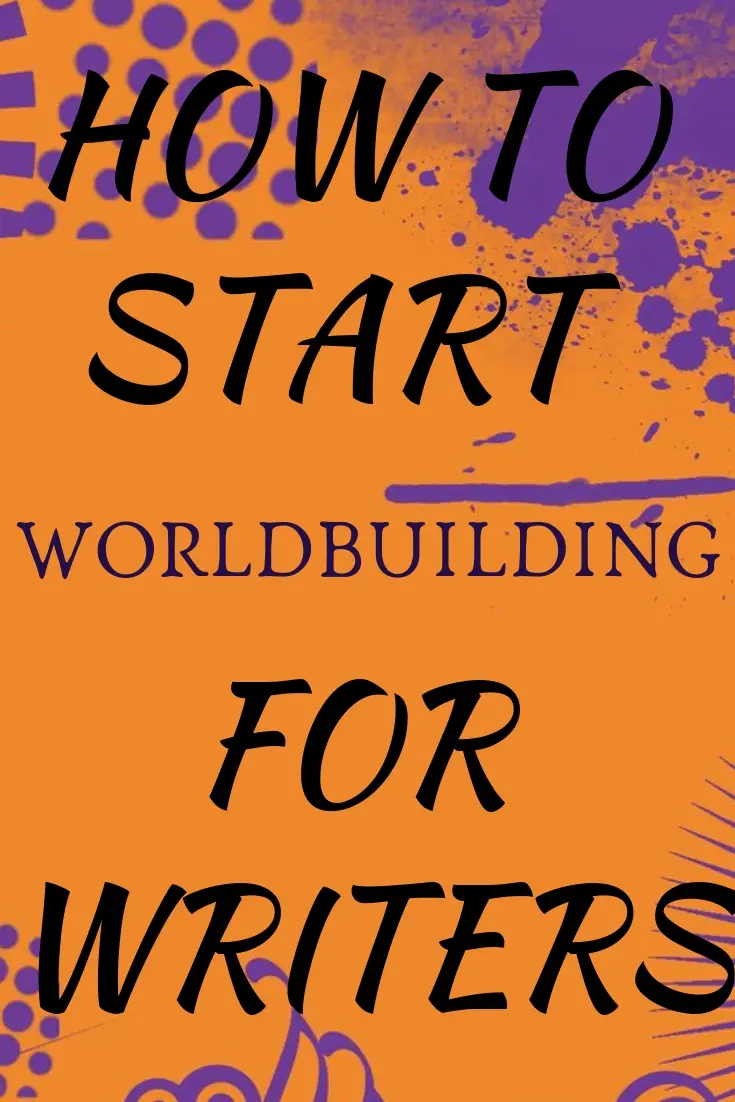
Intermediate Worldbuilding Topics
I’m going by what seems most fundamental to me. These are the topics that everyone has to grapple with to some degree. It’s possible to write a fantasy novel and never once think about what language the characters speak.
It’s not possible to completely ignore geography.
Preliminary Notes
Every book is going to be different. This means I can’t really give you some step-by-step guide to generating the whole world for your book.
This guide will basically be like a conversation. It’s half with myself, half with some imaginary person. I’ll bring up ideas and questions that are common along with the pitfalls I see people make.
The best way to use this guide is to just read through a topic that you’re thinking about to get a feel for the potential issues.
The key thing to remember from the previous post is that everything is about cause and effect. Don’t do too much. Start with things you absolutely need, and then figure what caused this in the world and how that thing would change the world from our own.
Worldbuilding the Geography
This topic feels so easy. How could one go wrong? Take some paper, scratch some town names down, and connect them with roads. You’ve got your world map!
Not so fast.
Geography can go horribly wrong without some careful consideration. You’ll need to figure out how and why natural phenomena occur and how and why civilizations spring up in certain regions.
Landscape
There are a million ways to mess up the landscape. They can’t all be listed here, but these are some things that sound obvious but get missed without proper forethought.
Water flows down to a local minimum in your topography. So, don’t let your rivers flow uphill. Also, rivers very rarely flow away from larger bodies of water. They flow to the ocean or lake. If they go the other way, there better be a good explanation.
Maybe you’re inspired by some cool landforms on our planet, like fjords. Well, those were formed by glaciers. Did your world have an Ice Age or reason that glaciers would retreat through an area?
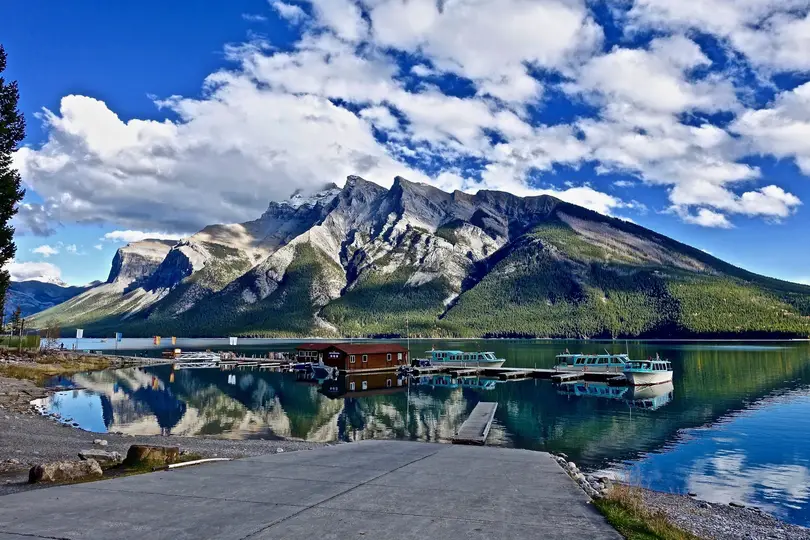
Cause and effect is king in worldbuilding. You should always ask yourself why a thing exists the way it exists. This will get you to look at the world around you in a new way. You don’t have to put your answers into your novel, but you should make sure you’ve answered them for yourself.
Civilization
Civilizations tend to want to exist, so they settle in places with good livability prospects. This often means near water/rivers, on fertile ground for farming, with an abundance of wildlife for hunting.
I’m not saying all of these things at once, but there has to be some natural resource to make living possible.
Deserts are fun, but how do people travel in them? I recently read a poorly constructed novel based around deserts and magic. People seemed to just walk through the desert without batting an eye.
Sorry, but you’ll need to give more details in this case.
Look at Dune. Half the book is devoted to explaining how people survive in a desert. Do people use special suits? Have they evolved somehow to make it more manageable? Why did they settle there if there are non-desert regions nearby?
Climate
Maybe you don’t see a point to any of this. You’re writing a small-town story with no interesting geography. You at least will need to know the climate…and geography affects climate!
I think this is one of the most overlooked concepts. People never once consider the geography of their setting, yet they seem to know all the different weather patterns that can occur. This is impossible!
Seattle doesn’t get thunderstorms because storms come from the Pacific Ocean, and they get blocked by mountains (plus other complicated things having to do with Pacific water air being cold, high-pressure systems, etc).
So, before you make it thunderstorm in your book, or snow, or have any weather of any kind, you’ll need to know these things are possible.
Nature
Now that you have some geography and climate, you’ll have to determine how much nature will deviate from Earth. I’m using the term “nature” to refer to plants and animals.
There’s definitely something tonally strange about a completely foreign secondary world in terms of people and magic but having a natural setting identical to Earth.
This has been done well in some circumstances, but it’s more likely to be strange in a bad way if you don’t put some thought into it.
Here’s what I mean: suppose you have orcs and goblins and fire elemental spirits. Are we supposed to believe such a planet has all of the plants and animals the same as Earth?
The easiest way to avoid this is to avoid being too specific. Use the word “tree” not “Oak tree.” There is a presumed “translation” going on most of the time, and so we can maintain our suspension of disbelief by thinking “tree” refers to something vaguely similar to our concept of “tree.”
If you want to layer in some mystery without going overboard, you can use animals that used to exist, like the prehistoric “direwolf.” Game of Thrones uses this technique.
The most complicated version of this is to invent completely foreign plants and animals. This is the most fun, but it should fit into the world. You can give them names that fit into your language scheme (notes on languages next time).
This gives a completely immersive and enchanting reading experience when done well. But, unless you do some serious research on botany or zoology, be careful when constructing things too out there.
This is one of those rare cases that I think you should seek feedback from someone who knows a lot about the topic. You could even simply ask: is this possible? If the answer is: no, then you can sound very convincing when you drop in the explanation why it is possible in your world.
I think Sue Burke’s Semiosis does this well.
Worldbuilding History for Writers
Even the person writing about the small town is going to have to have an understanding of the history of that town and the people in it.
Lots of people mistakenly think that history worldbuilding is for those epic fantasy stories that are so vast they measure things in “Ages.”
Not quite.
Pretty much everyone should sketch out a history of the major events.
The more you have, the more complicated this can get.
Basics
At a basic level, really try to only sketch key things. Like, if one faction/species are enemies or allies with another, you’ll need to know why. It’s okay if the reader never knows, but you must.
It’s also okay if the answer is: they formed an alliance 200 years ago after a certain war. General timescales like this are important.
To me, this is where the character and depth of the worldbuilding can create truly memorable and rewarding books. It’s so bland and ordinary when history hasn’t been sketched out.
If you take out the magic, the reader shouldn’t wonder if it just takes place in Medieval Europe.
Cultural Evolution
History lets you get interesting quirks in culture into your book.
Think about real life. What is Christmas? Religious circles will tell you it is a celebration of the birth of Christ.
But is it?
Why on Earth do we decorate pine trees and celebrate on December 25?
History!
Constantine, the Roman emperor, converted to Christianity. He needed to make the religion more palatable to the Pagans, so he used a Pagan celebration already in existence: Saturnalia.
Since days keep getting shorter in winter, it’s a ritual to bring the sun back (presumably believing the sun was leaving them). The pine tree was the only type of tree not dying in winter, so it got used to as part of the ceremony.
Thus, Christmas trees and December 25!
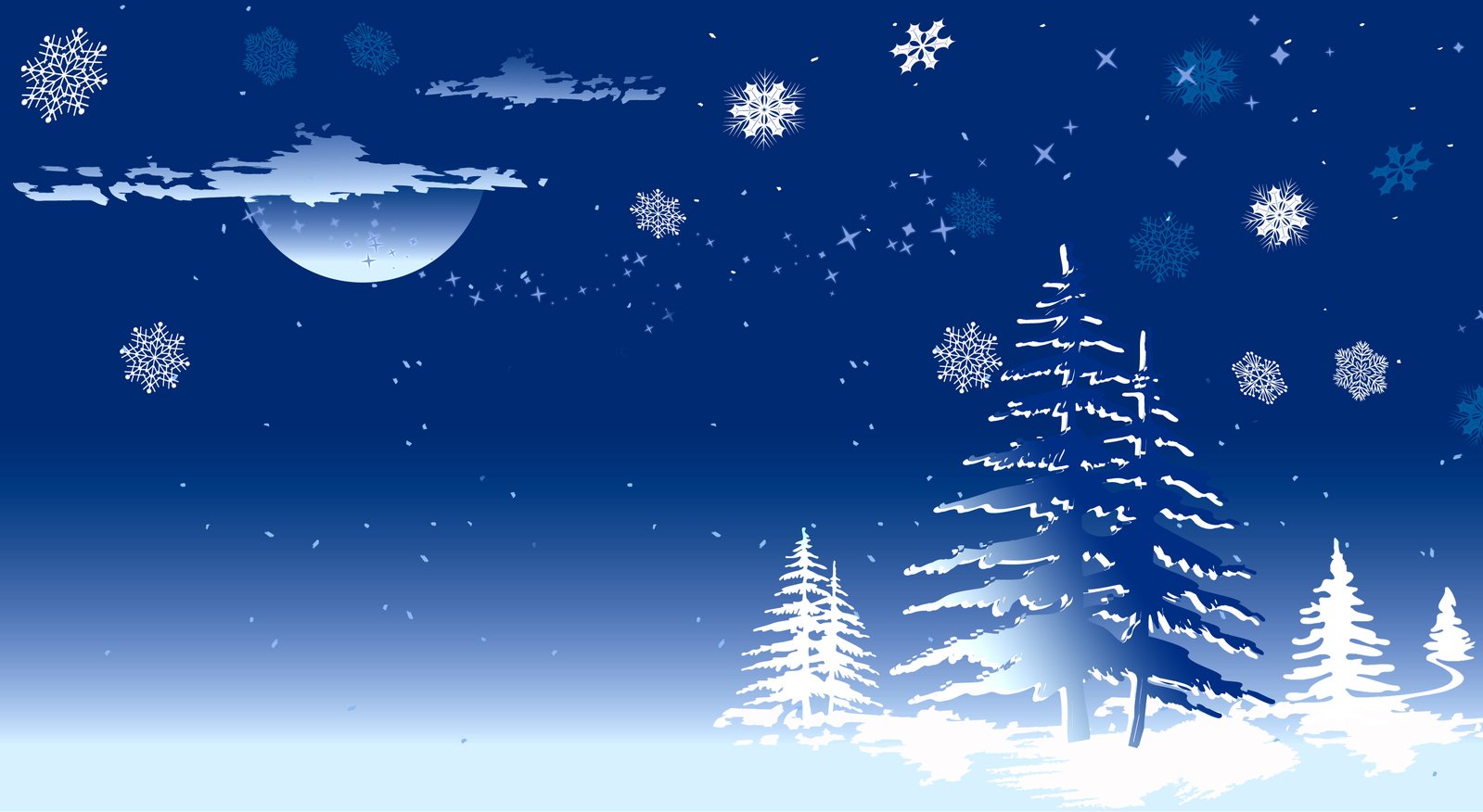
Lesson: if one group of people were conquered by another at some point (or the whims of an emperor change), their customs and rituals and religions will probably evolve and take in the ideas of others.
But the first step is to know such a conquering or conversion took place.
Customs, Rituals, and Religion
Let’s start with religion since this will get me in the most trouble. You could probably safely skip making religions in a large number of books. Customs and culture form more of the foundation.
Religions
Religions aren’t rational.
You can finally throw all this cause/effect stuff out the window. They shouldn’t even be fully consistent. There’s not a single religion on our planet that is rational or consistent.
The biggest tell that a religion is made up for a book is that it makes too much sense. Too many times I’ve seen the people believe X for reason Y, and hence they have this exact ritual that does Z.
Real life doesn’t work that way.
Remind yourself that Christmas exists whenever you feel tempted to be rational about a religious celebration. The people might say it’s about the birth of their savior, but the actual ritual involves cutting a tree down, dragging it in the house, and decorating it!
Rituals and Customs
On the other hand, it can be fun to be rational about the irrational. Go crazy coming up with reasons the people do a ritual that seems to have nothing to do with the thing they are celebrating.
The deeper you go on these things, the more believable your world becomes.
I’ll also remind you that religion doesn’t really exist in a world in which the claims have demonstrable proof.
By definition, a religion involves people believing things in the absence of evidence. If there’s evidence, then it’s just a form of science (remember this when your gods appear to people or prayer reliably works).
All of this still applies to customs and rituals. Why do people store glasses rim-side down in their cupboards? Isn’t that weird? It seems less sanitary.
I was once told that this U.S. custom originated during the Dust Bowl in the 1930s as a way to keep the dust from settling in the glasses.
Is this true?
Who cares! It’s a great story for why such a weird custom started. Use stuff like this as inspiration.
This is why you needed to create a history.
Was there a time of great struggle in your world? Did people start doing something during it to help survive?
That’s the perfect place to start developing a custom. Don’t stop at the obvious thing if 200 years have passed. How has it morphed over time into a tangentially related thing?
Government
This is obviously a huge and complicated topic, but I’m putting it in this first worldbuilding for writers. This is because most writers won’t give this much depth, especially in fantasy.
Fantasy settings tend to have some vague monarchy, and then some medieval class structure trickles down to everyone else. With government, I think you either have to do something vague like this or be prepared to dump a lot of time into it.
If you go deep into this one, you’re going to need to answer a bunch of fundamental questions, and it will help to read up on political philosophy.
What is government, and why do your people have it? Have they gone through some sort of Enlightenment? If they haven’t, then have they developed a theory of rights or ownership of property?
More importantly, can you answer the question: why does our government have any power over us at all? If you live in the U.S., and your answer is: force, then you have some reading to do.
We don’t pay taxes because we’re afraid of going to jail. If your view of government is that they threaten us to make us follow laws, you’re ignorant of history, philosophy, and have probably seen a bit too much propaganda from a certain “news” channel.
Our government is founded on something known as “social contract theory,” and you willingly pay those taxes and submit to the police when breaking a law.
Worldbuilding a Government Takeaway
Anyway, enough on that rant, but you need to know this stuff if you want to make a government in your world.
This requires knowing some of the histories of the people and the movements they’ve gone through. Malazan does this quite well. The philosophy and history of the people come through in every facet of those books while very rarely being stated outright.
You’ll need to determine how the magical or otherworldly elements affect people’s philosophy and sense of safety.
One thing I’ve always wanted to see is a world in which the gods intervene and appear to people that tackle the government problem. It seems pretty clear to me that no government we know about on Earth makes sense in such a case.
The government can’t protect or enforce anything if supernatural forces can override them. Would the gods just be dictators? I guess it depends on their motivations and desires.
Fantasy settings can change so much that we take for granted.
Thoughts
It can sometimes sound like I’m advocating for a perfectly rational world. One of the surest tells that a world is constructed and not real is that nothing unusual exists.
It’s okay to have a civilization settle somewhere hostile for irrational reasons. Easter Island exists, and that’s pretty weird.
Also, any of these topics can get to be too much if you let it. Remember, the goal is to write a book. First, the story should always override any worldbuilding concerns. The worldbuilding is there to make the story better, not the other way around.
It’s also easy to get overwhelmed. You only need what you need, and if you can start writing with almost no worldbuilding, that’s a million times better than getting stuck on the worldbuilding and never writing.
Advanced Worldbuilding Topics
I want to tackle the topics of worldbuilding that are usually optional in writing fiction, but they can also take longer than writing the actual book if you want to get into it.
Language Worldbuilding
This is my favorite of all these topics, and it’s been hard putting it off until now. Language, in real life, is so interesting and complicated.
Languages often encode what is essential to the culture of the early speakers (the cliche example is that Eskimos have 21 words for “snow.” This doesn’t even scratch the surface of what I mean by this).
Languages trace the history of the speakers. Have you ever noticed how many words of Norwegian have similarities to German? Probably not, but I have.
These things can subtly imply deep history and cultural trends if done well. They can also take up all your writing time, so be careful.
Easy Language Hacks
The easiest thing to do is to ignore all of it except for the fact that there are different languages. I’ve seen this done well, but I can’t think of those examples off the top of my head.
The main trick here is to have a character that knows the other language. Then, you can have that character translate.
You can even transition the prose so that it is understood a translation is happening, but the characters converse as if there isn’t.
There are lots of other tricks along these lines to contribute to the worldbuilding without going overboard on making a language. The other most common easy one is to have a handful of words in the language of the people of the book.
This is super common in fantasy. Writers like Brandon Sanderson use words like “spren,” even though the rest of the book is in English. It implies the other language selectively without needing to have an underlying vocabulary and grammar.
The technique goes back quite a ways and can be found in The Wheel of Time with words like “saidin.” The main thing to keep in mind with this is the consistency of sounds.
A good tip is to take a real language and just modify words from it in consistent ways. This way the words (including people’s names!) have a tonal consistency to them.
Advanced Language Worldbuilding
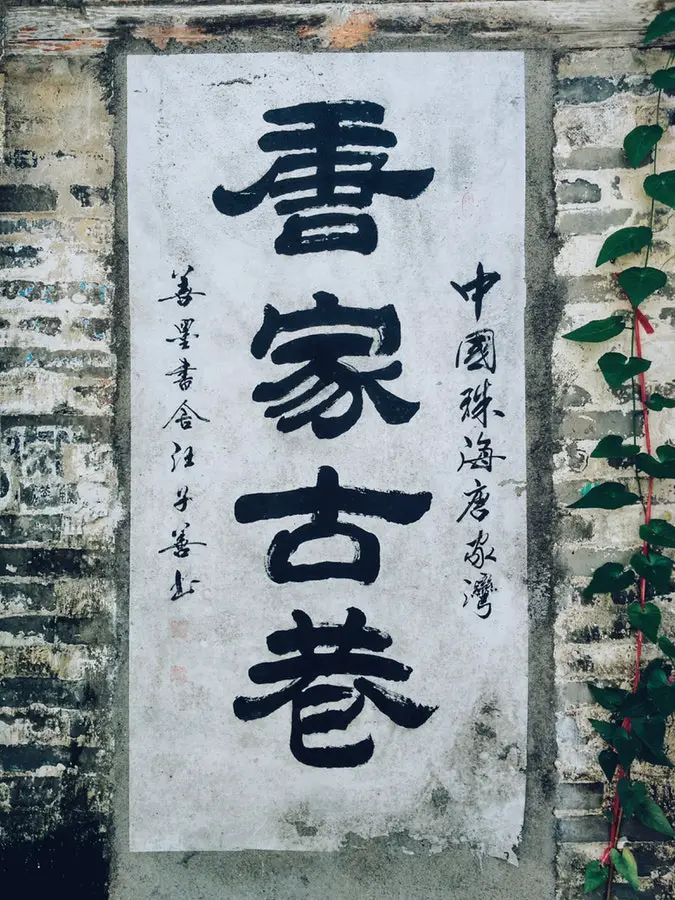
So, you don’t want to construct a whole language, but you also don’t want to just tweak an existing language. This is pretty common, actually. Many “full” conlangs started this way and were only fleshed out later when fans demanded it (for example, Klingon).
Here are some considerations. Grammar will be your downfall. Look up eclipsis/lenition in Irish. Look up the cases of Russian. Look up past tense adjectives in Japanese (or the particle system). Learn some Turkish on Duolingo.
It pays to get your head out of English. I want to slap my forehead when someone’s constructed language is word-for-word translated English sentences without altering the grammar in any way.
Consider having more than one way to say “to be.” The single way is an English bias.
Some languages have a copula as a separate grammatical construction from “is.” Some distinguish between animate and inanimate being. Others distinguish between permanent and impermanent states of being.
Incorporate interesting culture into the language. Is the culture completely decentralized with no concept of ownership? Then the language might not have ways of expressing ownership (no possessive tense or genitive case or even the word “have”). This isn’t as unnatural as it sounds. Many languages in our world already do this.
Most Challenging Language Method
Go do a bunch of research on conlangs and develop a full language. This has obviously been done to great success in books like The Lord of the Rings.
I do not recommend this at all.
This guide is Worldbuilding for Writers, and a writer that does this will never write. On the other hand, if you only ever make one series that consists of 15 books, each over 1000 pages, then this probably would pay off in the long run.
It is going to depend greatly on your excitement for doing it. I’ve dabbled in it, and loved it, but even then, I’d never do it for a novel or even series.
![The Art of Language Invention: From Horse-Lords to Dark Elves, the Words Behind World-Building by [Peterson, David J.]](https://i0.wp.com/images-na.ssl-images-amazon.com/images/I/51xlEnNgjQL.jpg?resize=82%2C125&ssl=1)
A great and fun book to help you generate language ideas is: The Art of Language Invention: From Horse-Lords to Dark Elves, the Words Behind World-Building by David Peterson.
Magic Systems
If you’re a writer, and you’ve gotten this deep into this worldbuilding guide, then you probably write some sort of fantasy.
Magic systems are the bread and butter of fantasy, but they can go so wrong. I won’t do this in an easy to hard way. Instead, I’ll use the standard terminology of soft to hard.
Soft magic is a term used to describe magic systems that have no clear definable rules. The magic is mysterious and awe-inducing. The main example is Gandalf in the Lord of the Rings.
He seems to be able to do anything, and it’s not even obvious when he’s using magic. Most traditional fantasy uses this method.
Hard magic is a term used to describe magic systems that have very clear rules. The common example here is Mistborn. The magic system is not only extremely rigid and precise, but it is laid out in full for the reader.
Sanderson’s Laws of Magic
I feel obligated to tell you about Sanderson’s laws here, though I’ve been a part of this discussion so many times that it feels like everyone already knows this by now.
Basically, these laws help you understand what type of magic system you should/can use and how to make sure you still have a satisfying story at the end of it.
The Three Laws:
- Your ability to solve problems with your magic system should be proportional to how hard the magic system is.
- Flaws are more interesting than powers.
- Go deeper than wider.
These should be pretty much common sense for why he uses them. Basically, if you’re characters get out of situations for free with magic you didn’t know existed until that point, it will read like a deus ex machina.
Readers need to have already understood such a thing was possible to be satisfied. It is even better for the reader to know the rules of the magic system, but not have put together such a thing was possible.
This makes the scene the most fun because then the characters look clever rather than like they just cheated.
The third one circles back to my philosophy of cause and effect. When worldbuilding for a writer, you should only consider elements of the world that are necessary for the story.
All other worldbuilding should stem as causes and effects of that element. Another way to say this is to not just throw as many cool elements in as possible (wide), but go deep into why the elements that do exist are the way they are.
Each thing you put into your magic system is another chance to break all the previous worldbuilding. Can people fly? Well, that impassable wall makes no sense now.
Consequences of Magic
I find magic systems to be one of the hardest and least fun aspects of worldbuilding for a novel. This puts me in the minority, but if you take seriously the consequences of your magic system, it should be nauseating.
The tiniest amount of magic will usually have drastic consequences on history, culture, and every other thing we’ve talked about.
If you throw magic into your book willy-nilly, you’ll end up with a deeply unsatisfying and nonsensical world. Take this part seriously!
Final Remarks
These are my thoughts and opinions as someone who has gone through this process quite a few times now.
Obviously, do what works for you if you think this is all nonsense. This sequence of posts on worldbuilding is meant to be helpful to people stuck somewhere in the process. If these steps only make it worse and less creative for you, don’t do it!
For everyone else, good luck! And have fun! This is one of the coolest parts of writing secondary worlds.








